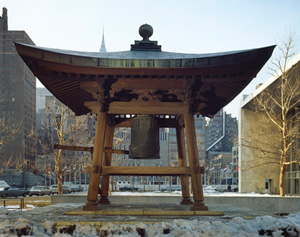Over the past several decades, 21 September has been celebrated by the United Nations as International Day of Peace. It is a reminder that peace is the most important public good and the main reason for the creation of the post-World War II web of international organisations. The occasion is observed by the ringing of the Peace Bell in a solemn ceremony at UN Headquarters in New York. In the days that follow, world leaders meet in the annual “global village town hall” to discuss the challenges facing humanity and reconfirm their commitment to finding solutions that work for all through peaceful cooperation.
The theory and practice are not in full synch, of course, as a series of actual and potential conflicts demonstrate. Nonetheless, the symbolism of the day and the commitment of all leaders, rhetorically at least, to the aspiration of peace, is no small matter. This year’s International Day of Peace is dedicated to climate change, which shows that peace is more than the absence of war. Climate change is not a traditional security threat but increasingly contributes to tensions between and within countries, for example through increased food and water insecurity and migration. The underlying message is that without decent living conditions for all people and respect for our planet peace cannot take root and conflict is not far away.
Among a set of proposals that Katoikos’ parent institution, the Foundation for Global Governance and Sustainability (FOGGS) has put forward for a “modern, effective, ethical and people-centred United Nations”, is the introduction of a global holiday. It should go further than a regular UN day dedicated to a good cause and should be a real day off, celebrated by the people all around the world. The International Day of Peace could be that day and a good opportunity to declare it would be 21 September 2020, when world leaders will be meeting again next year, also marking the 75th anniversary of the UN.



